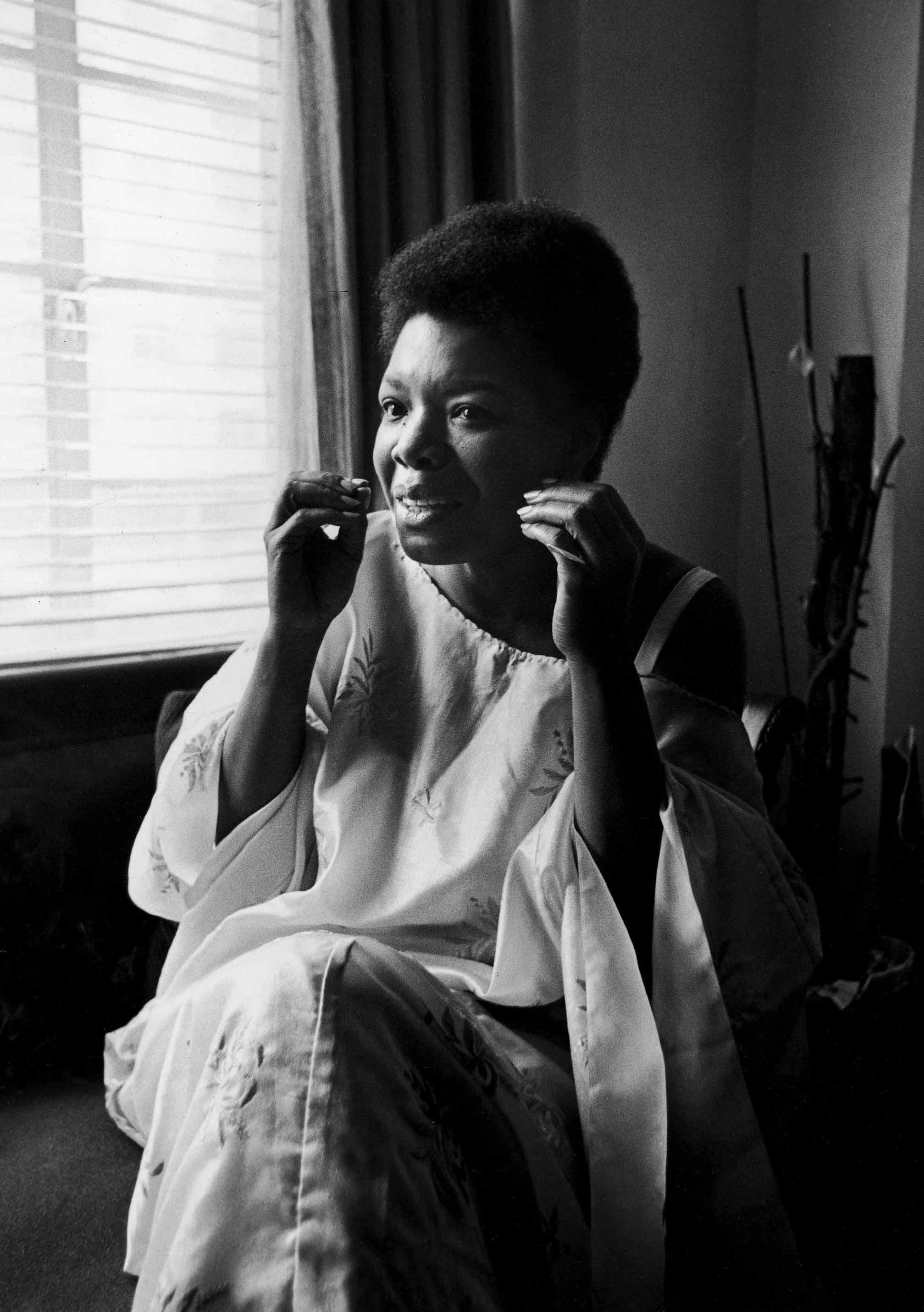
When Maya Angelou was 16 she became San Francisco’s first black female streetcar conductor. By the time she was 40 she had also been, in no particular order, a cook, a waitress, a madam, a prostitute, a dancer, an actress, a playwright and a calypso singer. (Her one album is titled Miss Calypso.) It wasn’t until 1969, when she was 40, that she became an author and kick-started a career that would span TV, movies, university classrooms and President Clinton’s Inauguration stage.
In her first book, I Know Why the Caged Bird Sings, Angelou, who died May 28 at 86, tells the story of her life up to the age of 17. She describes herself as “a too-big Negro girl, with nappy black hair, broad feet and a space between her teeth that would hold a number-two pencil.” Although the book has been assigned to countless high school students, its unsparing account of black life in the South during the Depression and of her sexual abuse is not easy reading. But Angelou’s tough, funny, lyrical voice transforms her story from a litany of isolation and suffering into a hymn of glorious human endurance that profoundly influenced generations of memoirists.
Her relentless creativity didn’t balk at her own obituary, and as usual she put it better than anyone else could have. “What I would really like said about me is that I dared to love,” Angelou told an interviewer in 1985. “By love I mean that condition in the human spirit so profound, it encourages us to develop courage and build bridges, and then to trust those bridges and cross the bridges in attempts to reach other human beings.”
–LEV GROSSMAN
More Must-Reads from TIME
- Cybersecurity Experts Are Sounding the Alarm on DOGE
- Meet the 2025 Women of the Year
- The Harsh Truth About Disability Inclusion
- Why Do More Young Adults Have Cancer?
- Colman Domingo Leads With Radical Love
- How to Get Better at Doing Things Alone
- Michelle Zauner Stares Down the Darkness
Contact us at letters@time.com